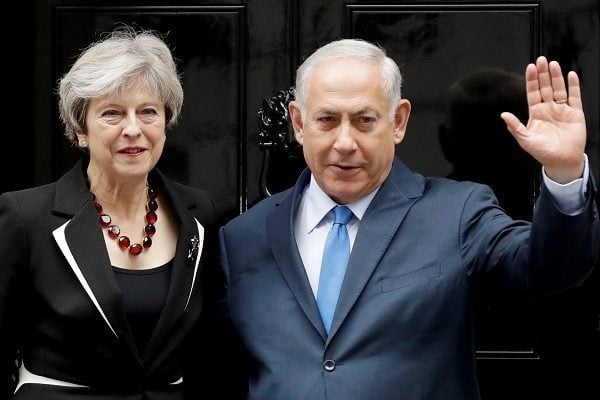The competing demands by Russia and the UK could place Netanyahu in a diplomatic tough spot.
By: Andrew Friedman, TPS
The British Embassy in Israel has demanded that Israel issue a “strong statement of support” about the March 4th poisoning of a former Russian double agent and his daughter in Salisbury, southeast of London.
The British demand that Israeli officials denounce Moscow for the attack follows Foreign Ministry Spokesman Emmanuel Nachshon’s response to the incident , posted on Twitter on March 15, in which he refrained from mentioning Russia and said only that “Israel views with gravity the event which took place in Great Britain and condemns it vigorously. We hope that the international community will cooperate in order to avoid such further events.”
British officials, including Prime Minister Theresa May and Foreign Secretary Boris Johnson, immediately blamed Moscow for the attack. Western allies of the United Kingdom have joined London in denouncing Russia, but Russian officials have denied involvement.
Last Friday, the Russian Embassy in Israel welcomed Nachshon’s measured response as a “wise position.” Notably, the statement published by the Russian embassy made reference to “West Jerusalem” as Israel’s seat of government, a departure from Russia’s official position and possibly a small bone to Prime Minister Benjamin Netanyahu, who has lobbied the international community to follow US President Donald Trump’s precedent and recognise Jerusalem as the state capital.
At the same time, Moscow warned Jerusalem not to be drawn into a “political and propagandistic campaign, which was unleashed by London under the false pretext of Russia’s alleged involvement in the poisoning of Sergei and Yulia Skripal.”
The competing demands could place Netanyahu in a difficult spot. The Israeli leader has nurtured a close relationship with Russian President Putin in recent years, travelling to Moscow three times in the past year alone in an attempt to ensure Russia’s help in limiting Iran’s presence in Syria following the conclusion of the civil war there, as well as help in addressing the Iran nuclear threat.
In addition, Russia-Israel trade has boomed since the countries signed a free trade agreement in 2011. In 2017 alone, bilateral trade spiked over the first half of the year by some $380 million, a 25 percent jump over the same period the previous year.
On the other hand, bilateral trade between Israel and the United Kingdom exceeds $7 billion, according to the Israel-Britain Chamber of Commerce (IBCC) ,in comparison to $1.45 billion in bilateral trade between Israel and Russia. In addition, there are more than 300 Israeli companies operating in the UK.
Netanyahu did not respond to the English demand for a stronger statement Tuesday or to a TPS request for comment. But less than 24 hours earlier he did issue a statement of congratulations to Putin upon the latter’s election victory in Russia’s presidential election.
“Dear Mr. President, Accept my sincere congratulations on your election victory yesterday. I greatly value our personal dialogue and I look forward to continuing to work closely together in the spirit of trust and understanding to promote our countries’ vital interests,” Netanyahu wrote.





